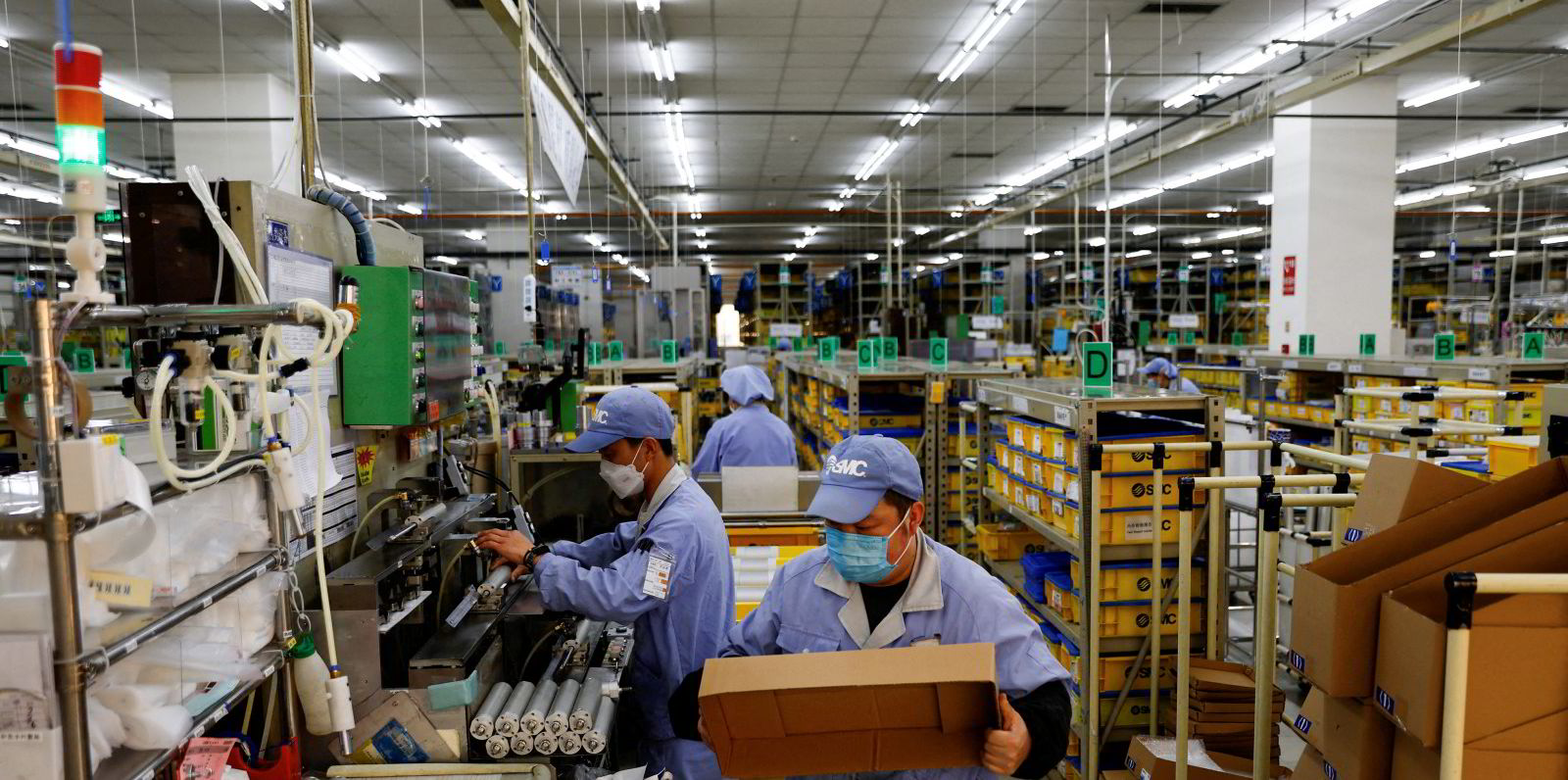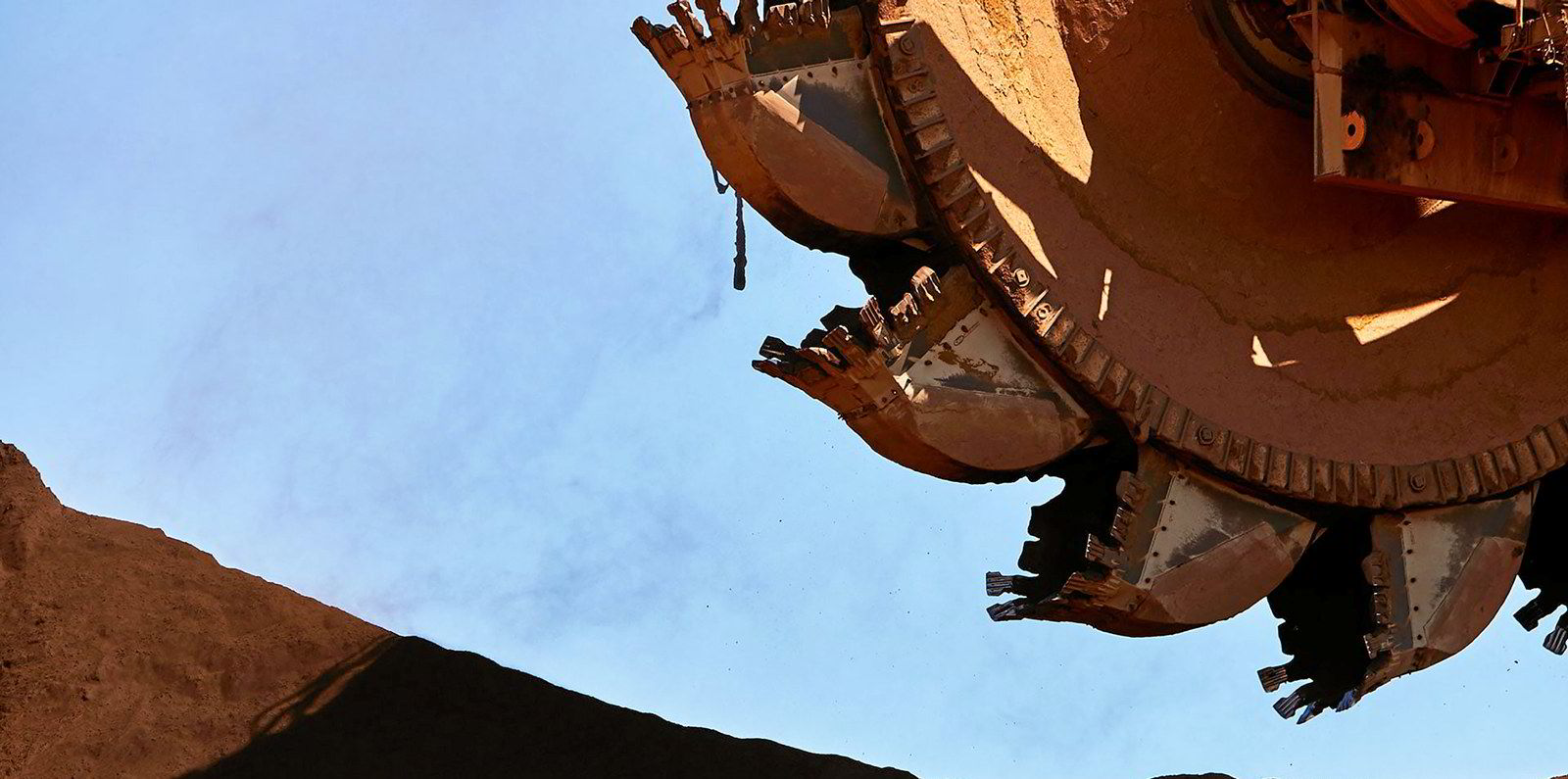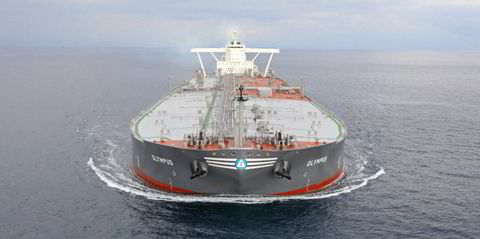The Baltic Dry Index (BDI) has reached a seven-week high as China’s manufacturing sector stuns to become the busiest it has been in more than a decade.
The BDI leapt 11% on Wednesday to 1,099 points, registering its highest point and crossing the 1,000-point threshold for the first time since early January.
The dry bulk market barometer received the biggest boost from the capesize sector as its 5TC of spot-rate averages shot up 27.5% on Wednesday to $7,703 per day to reach its highest level since mid-January.
The leap came as Rio Tinto hired an unnamed capesize on 1 March to carry 170,000 tonnes of iron ore at $7.05 per tonne from Dampier, Western Australia, to Qingdao, China, after loading the ship from 15 to 17 March.
Two days earlier, the Australian miner fixed two unnamed capesizes to transport the same amounts of ore from Port Hedland, Australia, to Qingdao at lower prices of $6.45 and $6.80 per tonne, with loading from 12 to 14 March.
The day’s spot market jump came as China’s manufacturing activity, which heavily influences demand for capesizes’ key cargo, expanded at the fastest pace in more than a decade in February, according to a government index.
The National Bureau of Statistics’ manufacturing purchasing managers’ index (PMI) rose to 52.6 from 50.1 in January, Reuters has reported.
This figure exceeded the 50-point mark that separates expansion and contraction in activity, beat an analyst forecast of 50.5 and was the highest reading since April 2012.
“There is renewed optimism on China’s recovery, and last night’s PMI number that was the highest in more than 10 years, shows that there is something going on in that part of the world that potentially can translate to strong demand for commodities,” Breakwave Advisors founder John Kartsonas told TradeWinds. Breakwave Advisors is an asset management firm that runs a exchange-traded dry bulk fund.
“Shipping will be the first to benefit as imports of raw materials will increase, putting upward pressure on freight rates.”
The futures market for capesizes indicated that higher rates are on the way, despite posting losses on Wednesday.

April contracts stood at $13,900 per day after losing $500 in late afternoon trading in London on Wednesday, while contracts for the second quarter landed at just $16,000 per day after sliding about $1,000 per day, according to data from Braemar.
Average spot rates for other bulker sizes are also on the rise after a train derailment in January caused major delays to iron ore shipments from Western Australia and coal shipments from Eastern Australia, Clarksons analyst Frode Morkedal said.
“This has provided support to both capesize and panamax rates,” he wrote in a note on 1 March.
The Panamax 5TC rose 6.6% on Wednesday to $13,600 per day, while the Supramax 10TC gained 4.6% to $12,700 per day. The Handysize 7TC improved 3.9% on Wednesday to $10,000 per day.





